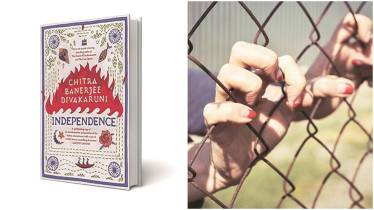If not for the free voices in literature and cinema, the realities of Partition would have remained gagged and choked, buried deep within, in the hearts and souls of the prisoners of independence. The line that changed the fate of a nation, the Radcliffe Line, would have meant the birth of two new nations and not mass rapes, ethnic cleansing, displacement, mutilations and uncontrolled violence that went on for days and scars that would last a lifetime.
But Partition literature was never any less revealing of the horrors of what went beyond the geographical division that mutilated a nation into two. Pinjar’s nakedness in exposing how women have time and again borne the brunt of wars, Saadat Hasan Manto’s chilling narration that stuns and shocks, Bhisham Sahni’s Tamas lay bare the atrocities of independence that cost the nation its people. Seventy-five years later, as the nation celebrates ‘Azadi ka Amrit Mahotsav’, priding on its self-sufficiency, several prominent literary voices pay their homage to the bloody legacy of 1947.
Also Read: Only if the truth could come in a pill
Serendipity it may be—that in the 75th year of India’s independence, came home the coveted Booker Prize—won by Geetanjali Shree for her novel Tomb of Sand—incidentally on the unresolved trauma inflicted by Partition.
In the same year, Aanchal Malhotra penned In the Language of Remembering and The Book of Everlasting Things, weaving her expertise on oral history into stories of the past, Manreet Sodhi Someshwar added another title Hyderabad in the partition trilogy.
Before the year concludes, Chitra Banerjee Divakaruni pulls out her saga of Partition literature. What makes Divakaruni’s Independence a worthy read is the author’s signature style of storytelling coupled with her strong sense of devotion in narrating ‘her’ story. The author reworks her charm of The Palace of Illusions and The Forest of Enchantments and yet again places women at the centre in her Partition saga.
Also Read: Eye on the goal: The book review on Ranjay Gulati’s ‘Deep Purpose’
Three sisters—Deepa, Jamini and Priya—are unique in their personalities and choices. They have their own flaws, and their characters are sketched out well. Their mother Bina holds the family together, treading carefully with the responsibility of three daughters coupled with the insecurities of having a husband, Nabakumar Ganguly, a doctor who puts duty and patriotism before his family.
“Bina has ambition for her daughters; she would like to marry them into affluent and respectable families,” writes the author. Set in the backdrop of the events of the Pin Kolkata, the author magnifies the impact on the unsung heroes of households—women, who were left behind lurking in uncertainty and insecurity as men and women joined the fight for freedom. “When men go off to be heroes, do they even realise what it does to the women they leave behind?” questions Divakaruni.
The author adopts a unique narrative style as she takes the story forward while narrating each sister’s side of the story. The coming-of-age Partition novel is not just about the independence struggle but goes deeper to take the readers on a journey as each sister realises that actual independence lies in doing not just what is right for yourself but for others as well. As they live through the Partition, getting separated by the course of life, they find themselves at different ends of the world, to be united in memory through letters.
In this novel, Divakaruni strikes a chord as much as she does with her mythology retellings. She writes, “The year is 1947. It is the best of times; it is the worst of times.”
Independence
Chitra Banerjee Divakaruni
HarperCollins
Pp 350, Rs 699
